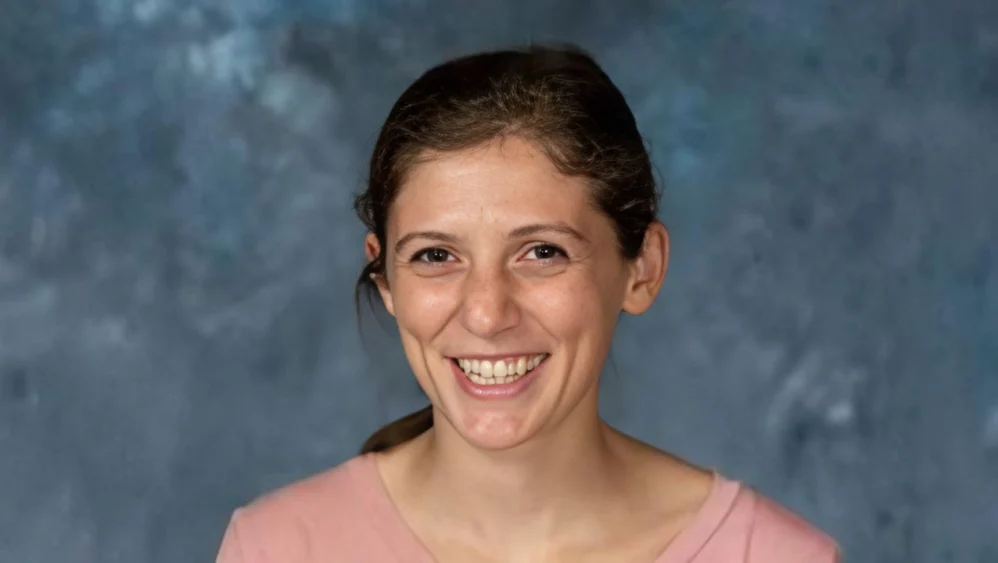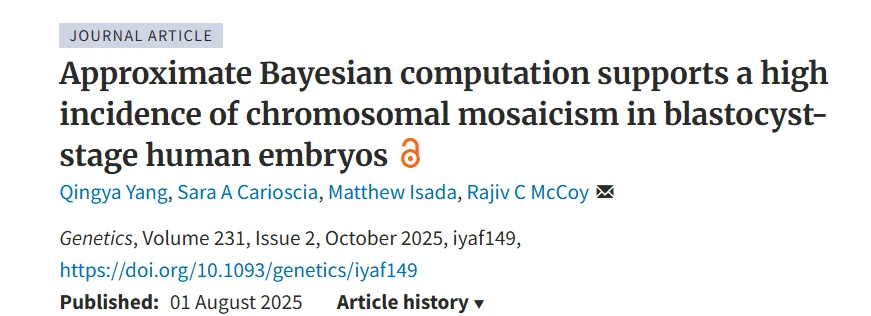
Sara Carioscia: Study Finds Fewer Than 1% of Human Blastocysts Are Fully Euploid
Sara Carioscia, Graduate Researcher, Computational Biology and Genomics at The Johns Hopkins University, shared a post on LinkedIn:
“Thrilled to share our new publication in Genetics!
Overall, we find that fewer than 1% of human blastocysts are likely fully euploid (chromosomally normal). This suggests that low-level mosaicism (a mix of normal and abnormal cells) is a normal, widespread feature of early embryonic development.
This paper is particularly exciting to me as it directly addresses a question that arose from my other PhD work, using data from IVF blastocyst biopsies. This research used computational modeling and approximate Bayesian computation (ABC) to overcome the limitations of small embryo biopsies, allowing us to infer the underlying rates of chromosomal errors (aneuploidies) during human preimplantation development.
Even more meaningful were the students (co-authors!) who I got to mentor on this project – Matthew Isada, who joined our lab as a PhD rotation student and demonstrated that this work is tractable and worth pursing; and Angela Yang, who joined the lab as an undergraduate(!) and built the computational infrastructure for these thousands of simulations. And thank you as always to my PhD advisor Rajiv McCoy for all the support and mentorship!”
Title: Approximate Bayesian computation supports a high incidence of chromosomal mosaicism in blastocyst-stage human embryos
Authors: Qingya Yang, Sara A Carioscia, Matthew Isada, Rajiv C McCoy

-
Oct 11, 2025, 06:44The Global IVF Market Is Set to Reach $65B by 2032 – Meddilink
-
Feb 4, 2026, 00:43Join the 2026 Rising Stars Webinar On February 11 – SSR
-
Feb 4, 2026, 00:18Dalia Alqarni: Urinary Incontinence’s Impact on Women’s Health
-
Feb 4, 2026, 00:16New Study Reveals IVF Success for Women With Endometriosis – Fertility Plus
-
Feb 4, 2026, 00:13Tamuka Chekero: Exploring Relational Autonomy in Infertility Across Cultures
-
Feb 2, 2026, 13:04Optimal GnRH Agonist Dosage for Oocyte Maturation – Fertility and Sterility
-
Feb 2, 2026, 12:39Family Planning Challenges for Women with Lupus – The Lupus Foundation of Australasia
-
Feb 2, 2026, 12:17Anis Feki: Innovative Strategies for Bowel Endometriosis Management
-
Feb 2, 2026, 12:10Revolutionizing Testicular Cell Cultivation with 3D Bioprinting – School of Infection, Inflammation and Immunology, University of Birmingham
-
Feb 2, 2026, 12:07Cesar Diaz Garcia: Age and Its Impact on Male Fertility
